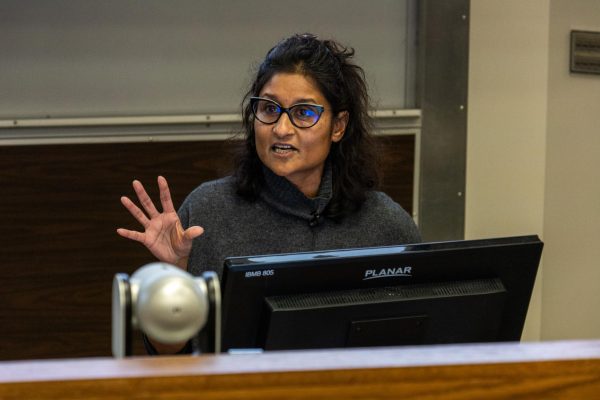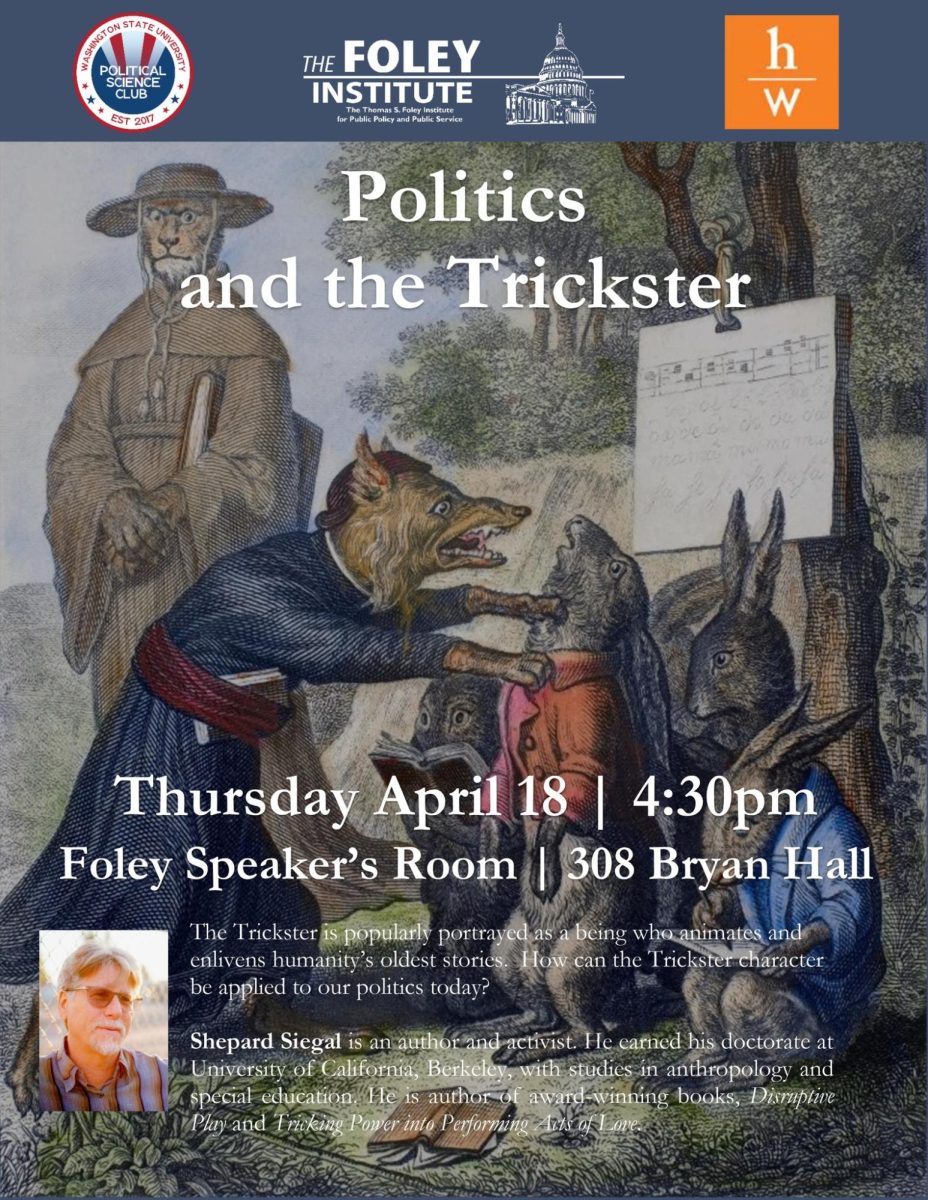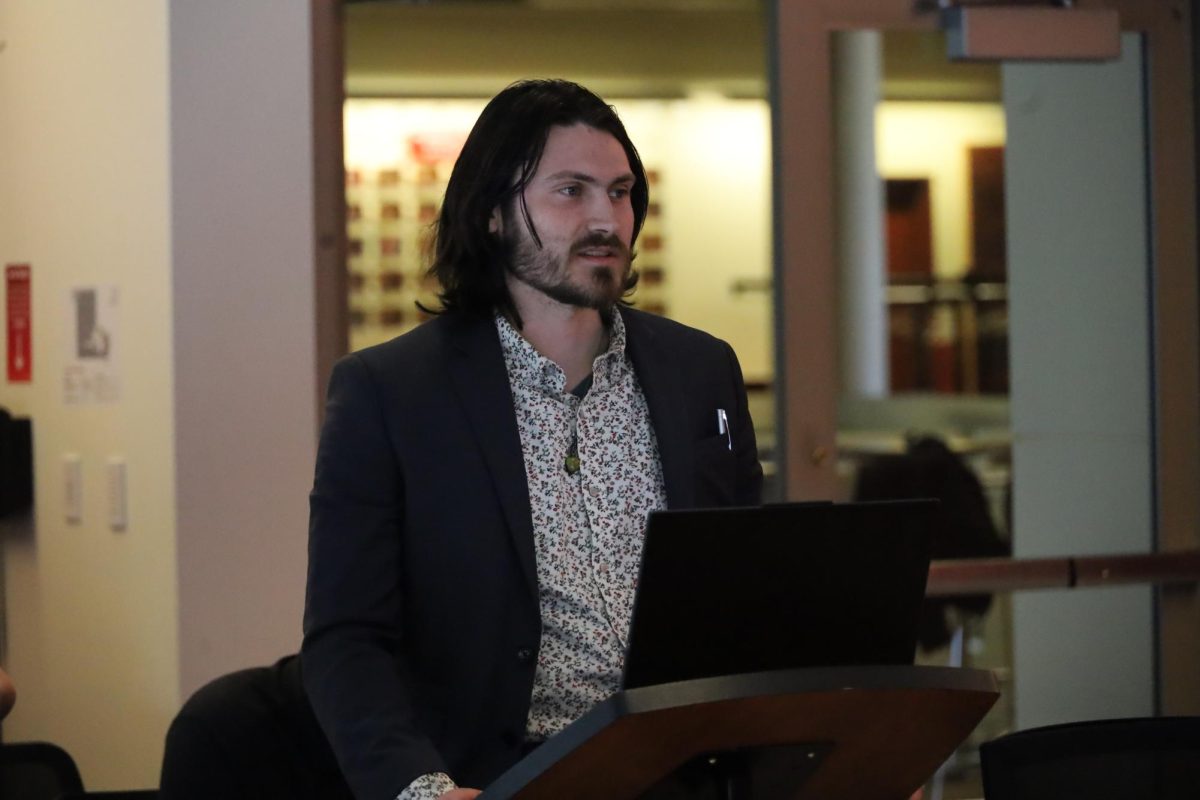The Veterinary Microbiology and Pathology department at WSU held an “Advances in Immunology Seminar” presented by Dr. Michelle Massaquoi Jan. 11, with the purpose of discussing the mechanisms of a bacterial protein known as the Befa cell.
Massaquo is a PhD Scientist who earned her Doctorate in Molecular Biology at the University of Oregon, where she studied the effects of Microbiota on a host organism. Her latest research has been with the research organization ThermoFisher.
For this seminar, Massaquoi presented to students and staff the latest findings on the cell-specific responses to microbiota and how they play crucial roles in the development of the microbiota host. A microbe is an organism that is microscopic and lives in a single-celled form, as well as in groups. Animals are host to many microbes, Massaquoi said.
Microbiota are microbes found in a specific environment. Microbes contribute to the host’s health and wellness, affecting systems such as metabolism and liver function, Massaquoi said. The study presented by Massaquoi used a microbiota called Zebrafish. Zebrafish are ideal to see in this research due to their small size.
Lots of studies in the field of this research show that microbiota is crucial for the development of the intestines, more specifically, the pancreas, she said. The expansion of the pancreatic beta cell was the focus of this seminar. Massaquoi discussed the process of beta cell development and the factors that contributed to this result.
The Beta Cell Expansion Factor, which contributes to the expansion of pancreatic beta cells, is known as Befa. Massaquois’s research hypothesized that there is a specific receptor that Befa acts on. Her research first asked, if introducing the Befa Cell into the bloodstream was enough to cause expansion.
Massaquoi said her research showed that the blood vasculature and the pancreatic duct are ways BEFA can induce Beta Cell Expansion. Her research used ScRNA sequencing to profile the presence of the cell and its origin.
The software used in this research is very important. New technology allows scientists to gather large data sets. There are three types of measurements used when analyzing single-cell data. There are bulk omics, single-cell omics, and spatial omics. Bulk omics are the average measure of the single-cell data. Single-cell omics measure the individual cell measurements. Finally, spatial omics are used to locate the location of the cell population.
Different cell types respond in different ways to Befa, however there are common biological themes. For example, Befa “inherently” distorts lipid membranes. Bena can react with diverse cell types, Massaquoi said. In this aspect of the Massaquois hypothesis, she was correct. However, her research revealed that Befa stimulates cell expansion because of response to Befa, rather than due to a stimulant.
The purpose of this seminar was to discuss these advances in immunology, microbiology, infectious diseases, and global health with students in the Veterinary, and Microbiology and Pathology department, she said.
The seminar is in a series of seminars, including one Jan. 18 led by Dr. Viveka Vadyvaloo.

Dr. Viveka Vadyvaloo presents during a seminar for the Advances in Immunology and Microbiology Seminar Series, Jan. 18, in Pullman, Wash.























